Max Payne 3: The Unexpected Finale That Reflected My Struggles
Time to really get to know Sam Burke, the twenty-three-year-old boomer!
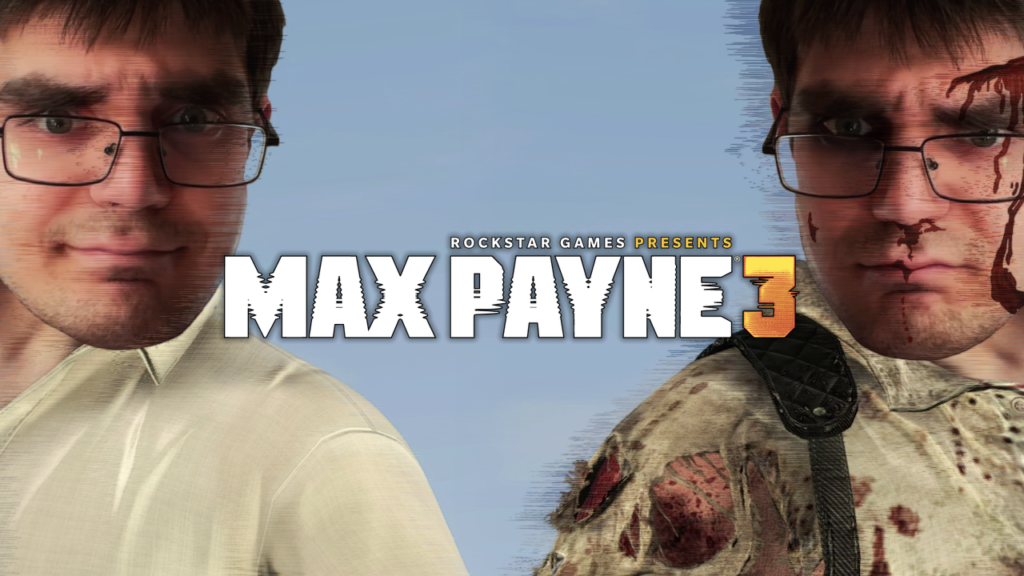
The Prodigal Son Returns… to São Paulo
Predicting which direction life’ll take you is basically impossible.
I moved to a small, pristine, two-year-old township in southeastern Pennsylvania called Exton when I was around six months old, and that’s where I stayed for the next twelve years. My neighborhood was full of giant houses and sloping green hills, dense woods lay just outside, and open stretches of conservation land lay just outside that. I grew up familiar with freshly-built stone and brick buildings, giant shopping malls of glass and iron, wide-open state parks for all ages, and a school system with stellar autistic support programs. The games I played, the movies I watched, and the music I listened to all reflected the suburban comfort of this lively, colorful township.
Then, I finished sixth grade, and my family loaded up the moving truck.
The town we relocated to was a century-old New England podunk shrouded in dense woods and populated with old-fashioned McMansions. Plus, as wealthy as Exton was, the community was lovely regardless. Here? Being associated with this town is a curse, as everyone near the cape assumes that you must be a hoity-toity, keep-to-themselves conservative. My sister would lie to everyone she knew that she lived two towns over for the sake of her social life, and I didn’t even last a year in my new middle school before the whole school district let me go entirely. My anger management issues saw a noticeable spike, a quick rise that only rose further when my parents split up after twenty-five years of marriage. I started playing more violent M-rated games like Saints Row, Grand Theft Auto, and Max Payne 3 instead of Sonic the Hedgehog or Wii Sports. Scared that I was turning violent, my parents sent me to the emergency room twice, and when I started refusing to go to school, they sent me to a residential “special education” school called Chamberlain International. Cue the malnourishment, constant bullying, exposure to fist-fights between delinquents, introduction to more violent games like Call of Duty, suffocating headlock restraints, and repeated reminders from the prison guards-turned-staff members that they were my new family. One of my dorm staff even told me the day I left that I belonged to him until the moment I walked out the door.
After several occasions where my parents nearly sued the school, my dad’s verbal in-person threats to my dorm staff, and the startup of a full-scale state investigation into the mounting abuse allegations toward the school, I switched to a legitimate special ed school closer to home, one with a strict anti-bullying policy and positively motivational staff. My social life remained dormant, and the juvenile sense of humor that I’d picked up at Chamberlain persisted. The closest connections I formed for the next three years were all loose acquaintances until the day I was complimented by a stunningly beautiful fly-girl named Hannah in gym. After she expressed her desire to get to know me better, we started talking more and more until we eventually exchanged contact information during senior year. We continued to keep each other updated on what was happening in our own lives post-graduation via Snapchat, as well as recommending new music to each other.
Then, after I’d started my gap year, she sent me suggestive videos of her and her jock boyfriend—something that she must’ve known I’d be uncomfortable with and was therefore very uncharacteristic of her. A couple weeks later, she told me she was working too many hours and couldn’t keep in contact anymore. Next thing I knew, the one friend I made during my gap year moved to Orlando, and with that, my luck had officially run out once again. I closed myself off from the world making videos, playing video games, and writing comic book scripts until applying to a state university that I was genuinely interested in. Throughout the week of move-in day, I got into two intense verbal altercations with my parents over such truly troubling issues as my bad attitude at dinner and my decision to take a break from watching a YouTuber I liked. I moved on-campus after my parents rambled on to my therapist for a half-hour about how I’d never leave the house or listen to a word they said, and thus, the night terrors and further inability to socialize with my peers outside of class began.
During this transitionary period, however, I happened upon a particular game that I hadn’t played since I moved away in early 2013. Now, with fresh eyes and a mature adult’s mind, I felt a connection to its cynical, defeatist-minded protagonist that I hadn’t felt since following the stories of Arthur Fleck in Joker or Arthur Morgan in Red Dead Redemption 2. At a time when the cast of the comic books I’m writing are the closest I’ve come to having real friends, the 2012 finale to Rockstar Games’s neo-noir third-person shooter franchise has gone on to become one of my favorite games of all time.
Back to the Night the Pain Started
Who is Max Payne? That would be the guy who many gamers have referred to as the unluckiest character in the entire medium. Now, considering I’ve been incredibly lucky my whole life despite my numerous traumatic experiences, relating to him might seem like a stretch, but I’ll get to why and how I’ve been able to do that in a bit. First, let’s explore the overall history of the series. It began in 2001 with an endlessly creative third-person shooter called Max Payne featuring Matrix-inspired dual-wielding, bullet-dodging, and time manipulation gameplay mechanics, which use a “Bullet Time” system fueled by an onscreen gauge that has to be filled back up over time. All the while, the plot’s delivered as a graphic novel that uses a grim, desaturated, detective noir tone and art style. It tells the story of an NYPD detective whose wife and baby daughter are murdered by junkies hooked on a mind-altering hallucinogen called Valkyr. After being framed for the death of his partner Alex, he becomes caught up within the New York mob amidst a deadly snowstorm until being pointed to the creator of the notorious designer drug. As it were, his wife accidentally uncovered top-secret documentation on the creation of Valkyr, thus leading to the initial junkies being tested on and used to silence her. Max exacts revenge upon Nicole Horne, the head of a tech conglomerate called the Aesir Corporation and the creator of the designer drug via “Project Valhalla”, and surrenders to police knowing that a fellow member of Horne’s secret society, the Inner Circle, will help clear his name.
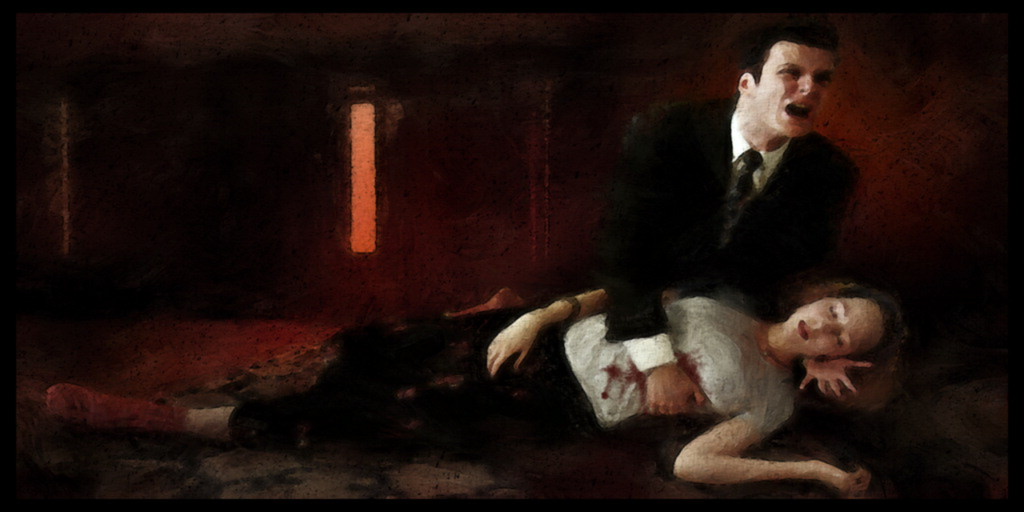
Max Payne 2: The Fall of Max Payne is nearly identical to the previous installment in a stylistic sense, although the character designs and much of the voice cast have changed, and the story acts as a direct continuation based around a tragic love story. After returning to the force, Max becomes caught up in a gang war and falls for an alluring assassin named Mona Sax, who was believed to have been killed in the first game. He’s then forced to choose between love and honor, leading him to murder his own partner, Valerie Winterson, on impulse to defend Mona. In the end, he and Mona infiltrate the Inner Circle to confront Russian mob boss Vladimir Lem, but Max discovers too late that Mona had been secretly contracted to kill him. She decides to put down her gun and let him go at the last second… before being shot in the back and killed by Vlad himself. Max takes out Vlad and returns to Mona’s body, thanking her for helping him solve the real case: the case of who he really is.
Oh, but there is a much happier secret ending featuring Mona’s survival if you complete the game on the “Dead on Arrival” difficulty level, but it obviously isn’t canonical.
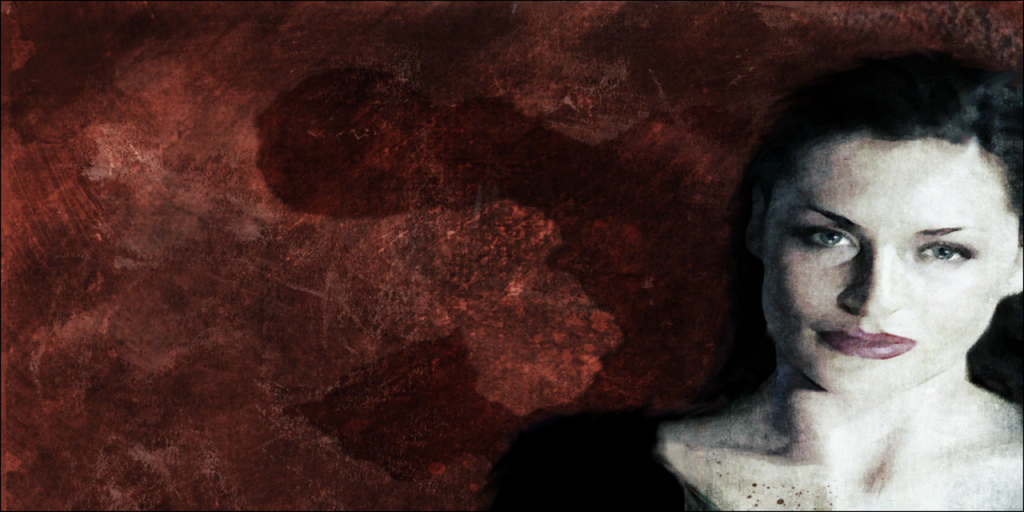
Finally, here we are, the finale where everything changes… well, mostly everything. The gameplay remains similar (albeit notably slower and more realistic), but it becomes a neo-noir story that scraps the graphic novel cutscene layout, features a radically different writing style, functions more as a fish-out-of-water character study, and takes place in the last location that you’d ever expect from a series like this. Now off the force again, Max is still struggling from the grief caused by the deaths of his family and Mona, as well as addicted to painkillers and having become a self-destructive alcoholic. Suddenly, one night, he’s invited by a fellow ex-cop named Raul Passos to come work a protection detail with him in São Paulo, Brazil, which he reluctantly accepts in the middle of being hunted down by the Italian mob for killing the don’s loud-mouthed son. He sets out to rescue the young wife of wealthy socialite Rodrigo Branco from a favela gang called Commando Sombra, only to realize that he’d been lied into moving thousands of miles away from home and dragged into a sickening organ-harvesting scheme being carried out by law enforcement and city officials on low-income civilians to fund the mayoral campaign of Rodrigo’s brother, Victor. It ends with him now a sober man, capturing Victor before he can flee the country and walking off into the sunset across a beach in Bahia, hopefully now free to live his life however he pleases.
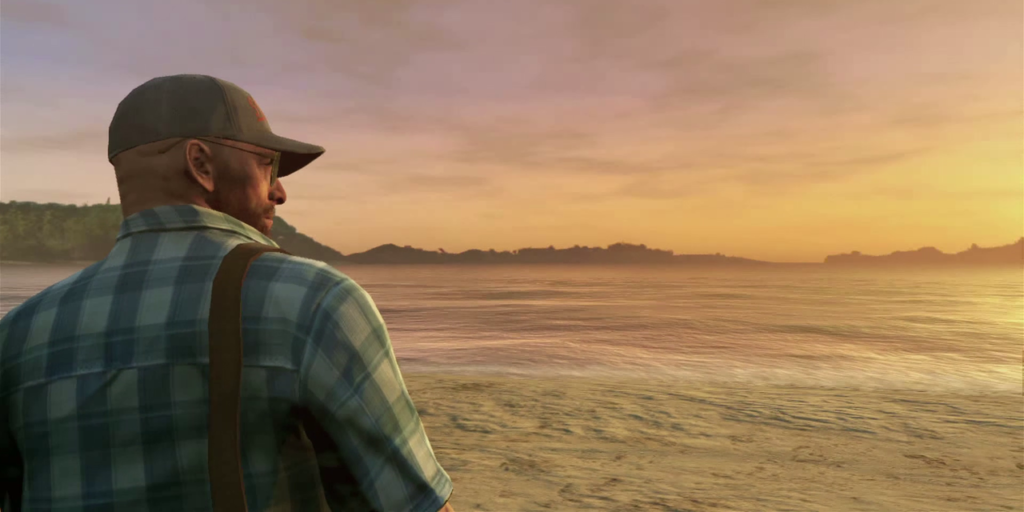
Now, what are my feelings toward this series overall? I’ll get more into them as the post continues, but case and point, I certainly don’t like the first two games as much as the third. Gameplay-wise, I can appreciate both as clever and innovative mashups (I sure as hell don’t need to say the title HuniePop again, nor would I like to), even if the perfectly-centered retro shooter camera is tough for me to work with compared to the third game’s modern over-the-shoulder camera, but Max is unfortunately a wet blanket throughout their stories, having very little charisma and getting on my nerves with his staggering amount of poetic nothings regarding “the past” and “seeing yourself in the mirror” throughout the second game (he does have some dry wit going on in the first, but it’s admittedly at the service of a very dull and wooden vocal performance.) Clearly, he’s a troubled man who has every right to express his grievances, but (a) it goes on over chapters where his trauma and self-reflection aren’t even relevant, and (b) the third game shows us more of his struggles than he has to tell us about them himself. I like to explain my annoyance with his narration in Max Payne 2 by using RedLetterMedia’s re:View episode on Bone Tomahawk, in which Jim praises Patrick Wilson’s performance as his noble, resilient character by saying, “how do you suffer through a movie without just sounding like you’re complaining all the time?” This is achieved in Max Payne 3, as Max does go through a lot of self-reflection within his narration and the reality of the game, but he’s now a character with some actual charisma and a stronger sense of resilience than he had previously. As a matter of fact, as I often like to describe him as, he’s so clearly a vigilante more than anything in the first two entries. In the third game, on the other hand, he’s a hero through and through.
Then again, aside from just the character of Max, I don’t find villains like Horne and Vlad particularly interesting—Vlad at least has some charm and depth compared to the cartoony baddie that Horne turns out to be, but I’ve always been annoyed by his dying line, “I was supposed to be the hero”, minutes after saying that the killing has only begun, and that “it’s better to reign in Hell than to serve in Heaven.” Also, I’ve basically developed a scale for how snarky and likable a female character is written, with characters like Bonnie McFarlane from Red Dead Redemption and Catwoman from Batman: Arkham Knight being fit into the bottom of the scale (incredibly snarky but incredibly likable) and the HuniePop cast being fit into the top (snarky to the point of being horrendously unlikable). In Max Payne 2, Mona probably goes just above the middle point for being needlessly rude at times, particularly at the construction yard at the end of part two⏤whether that be telling Max to “go to Hell” just for saying that he needs the cops to arrive, giving him an attitude for needing to handle some business alone, or calling him a bastard for nearly getting killed, like it’s somehow his fault!
Hmmm… maybe, we should get back on the topic of the third game, because I’m pretty sure I lost the thread paragraphs ago.
Connecting With the Disconnected
It looks like it’s time to answer that salient question: how does a twenty-three-year-old autistic college student with a relatively modest sense of humor feel an instant connection to a middle-aged, painkiller-pumped, alcoholic ex-NYPD detective? Well, first off, even when I had a social life, I’ve always communicated better with adults than anyone my age, especially nowadays. For instance, I was recently assigned a new job coach, and because I wasn’t totally comfortable with my previous one because he was about my age, thus creating a disconnect between whether he should be considered a professional associate or an actual friend, my current one is closer to thirty. Case and point, aside from my next-door neighbor, most of the people I know and talk to are older adults, so funny enough, Max’s older age is actually a plus.
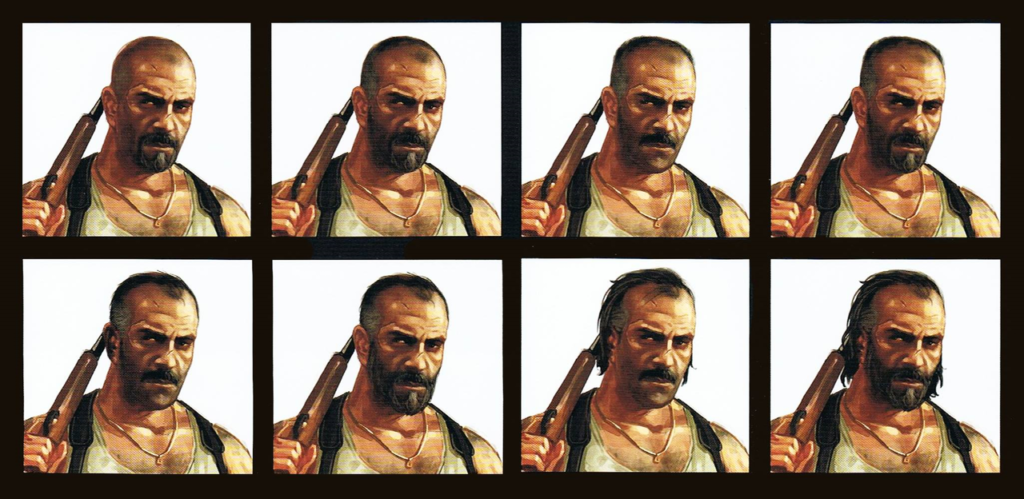
On a deeper level, however⏤aside from his obvious trauma and mental health issues of his own⏤I mostly relate to Max in terms of his overarching struggles as opposed to his specific struggles. What I mean by this is that I’ve never had to meet with a secret society of wealthy officials, set out on a manhunt against the Russian mob, or sneak into a decaying hotel to investigate an organ-harvesting operation. However, the personal issues that Max is ultimately working through include moving on with his life (while wasting away at a bar in Hoboken, New Jersey) and settling down in a new and unfamiliar place (among the wealthy citizens and favela residents of Brazil), both of which I still haven’t fully worked through myself. On top of that, he has to shed basically every friend and associate that he knows, as well as trudge through the overwhelming loneliness as a result of that, and this just keeps affecting him throughout the game regardless of how far he comes.
Following the surprise murder of Rodrigo, he sobers up and goes to rescue his wife Fabiana from a favela called Nova Esperança, only for her to get shot in the head and killed in front of her sister and Passos’ romantic partner Giovanna. Giovanna then has to watch as Fabiana’s brother-in-law, Marcelo, is burned alive by a paramilitary group called Crachá Preto that’s responsible for rounding up civilians for the organ-harvesting scheme. From that point on, Max works tirelessly with a pregnant Giovanna to evade law enforcement and make it to Passos alive, making for my favorite chapter in the game. Yet, even after he covers her so she can make it to Passos’s helicopter, thus ending dozens of lives for their own unborn child, Passos just flies off without him. He’s picked up by a sketchy and cowardly cop named Vincent Da Silva, who lays on the hard truth that Passos had been hired by Victor to bring Max to São Paulo, that Max had been used to (a) take the fall for Rodrigo’s murder and (b) launder money through Panama to fund Victor’s campaign on a previous job with Passos.
“It was the question I kept on asking myself: how could I have been so blind? I’d been convinced the Brancos had gotten the wrong man for the job, but maybe, Da Silva was right⏤I was the stooge, the bad joke everybody got but me.”
– A man who’s been put through as much confusion as me.
Now, first off, Passos’s betrayal despite the bond that’s been developed between Max and Giovanna has made me recall what happened between me and Hannah. It should be noted that she’d dealt with her own boyfriend cheating on her with her own best friend, as well as the death of her favorite counselor, both events that I did my best to help her through. Because of that, seeing Max utterly flabbergasted by the betrayal after everything he’d done for Giovanna has only strengthened my emotional connection to him, and it’s only grown stronger after he forgives Passos and wishes him and Giovanna a better life elsewhere. See, I’ve socially isolated myself since mine and Hannah’s fallout, but I’m still no incel⏤I try to show women respect, especially since it was mostly girls who opened up to me in high school, so I’ve always wished Hannah the best after she faded away. I’ve never been as angry about it as much as I’ve just been confused about why it happened. In fact, for the first time, I considered during a recent therapy session that ghosting me may not have even been her idea⏤her boyfriend might’ve just been uncomfortable with her talking to another guy, for all I knew, even if she was talking to me because I had no one else I could talk to. So, to see this troubled man still wishing this couple the best of luck after they’d essentially left him friendless hit me on a level that I never thought it would.
“It’s alright, it’s done. And, hey, I’m having myself a fun ol’ time. Maybe, this is how things had to be. Figure I might as well die in the sunshine as die in the snow.”
– One unceasingly forgiving son-of-a-bitch.
Now, like I said, Max and Passos had a previous job in Panama, specifically on a yacht protecting Daphne Bernstein, the ex-wife of a Wall Street magnate. In this chapter, you get Max trying desperately to have a positive outlook and sense of humor in spite of his inescapable personal issues, and seeing him try to sound polite towards a coke-snorting, self-absorbent douchebag like Marcelo is painfully relatable. In fact, so is the start of the second chapter, where he’s protecting Marcelo, Fabiana, and Giovanna at a downtown nightclub. As someone who went to a college in the city, there’s few scenes in the game that I can picture myself stuck in more than that brief sequence of Max standing in the corner of the elevator with his hands folded over his lap while surrounded by three upbeat youths. Same goes for when he’s getting blinded by the flashing neon lights and nudging his way through throngs of equally youthful party animals dancing to ear-grating techno music.
“This kind of place made me want to puke. I needed a real drink to deal with the electronic music and the robotic people.”
– Someone who I’m afraid might know me better than anyone.
Anywho, back on the subject of the Panama chapter, when Passos and Marcelo leave Max for a moment to discuss the cash being laundered, Marcelo complains about how “stuck-up” Max is, saying he should smile more because “life is good”. Next thing they know, Max just wanders alone below deck to his quarters, blacking out from inebriation. As he wanders there, the focus is very briefly shifted to Marcelo and all of the other happy young rich people partying it up. This hits me about as much as his last farewell to Passos and Giovanna, specifically in relation to my family and fellow college students. It should be stressed that my relatives and members of my immediate family are good and loving people, and I still maintain positive relationships with them to this day, but they still manage to drive me bat-shit crazy sometimes. A primary reason for this is that they’re the kind of people who, if they don’t understand why someone feels a certain way about something, act like none of the reasons that person might have matter⏤in their minds, they shouldn’t feel that way no matter what. For a couple examples, if I’m starting to become heated by something, they escalate the situation and then blame me for when it blows up into a temper tantrum; and if I’m highly sensitive to something harmless like anime, it doesn’t matter to them if that’s just another symptom of my autism. It’s either I get over it or I have a serious problem, like it’s my fault for being sensitive about it to begin with. That’s why Marcelo’s attitude about Max affects me like it does, just that inability to understand someone else’s feelings and what’s causing them to feel that way. Come to think of it, when Max heads down to his quarters alone, it almost seems to echo any time I leave my family and retreat to my room downstairs, seemingly just in passive acceptance that everyone else is getting along just fine together without me. Hell, that brief yet cynical focus on the carefree partiers feels like a gut-punch on its own, as if to emphasize how alone Max is in his struggles. As “Folsom Prison Blues” by Johnny Cash goes, “those people keep ‘a movin’, and that’s what tortures me.”
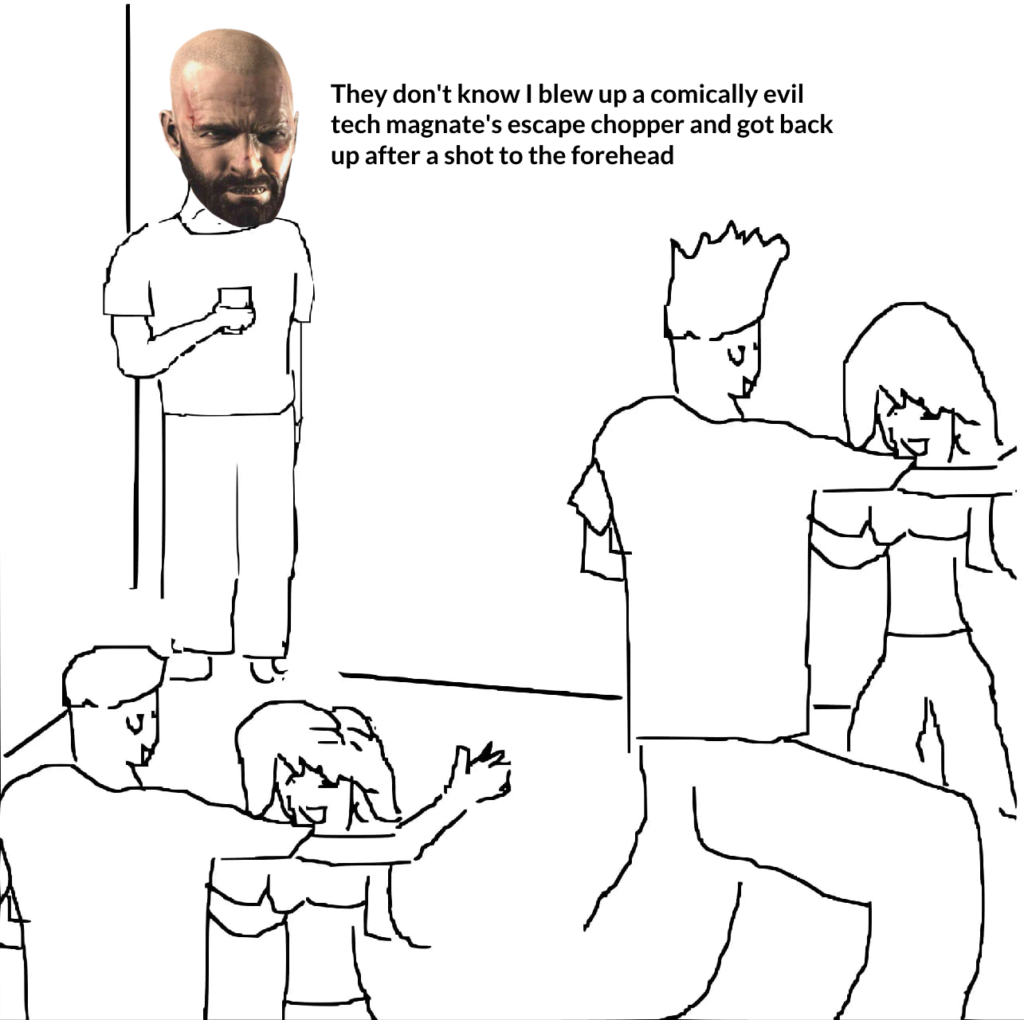
Oh, and just as a sidenote, this isn’t anything personal or relatable, but I’ve always been confused about one minor detail in Max’s opening narration for this chapter. He calls Panama his second job with Passos before going on to describe his easier first job as “money for banging waitresses at some fancy wedding in the Caribbean”. Now, working security for the bride and groom makes sense, but the “banging waitresses” bit is a little strange to me, because… wouldn’t they essentially be prostituting themselves? Were the bride and groom just behind some shady stuff that Max and Passos had to distract the public from? I tried asking my dad about this, and he theorized that they were just spending their off-time with a couple of random waitresses, but I argued that they were clearly getting paid for it. That was as far as the conversation got because we were both equally stumped.
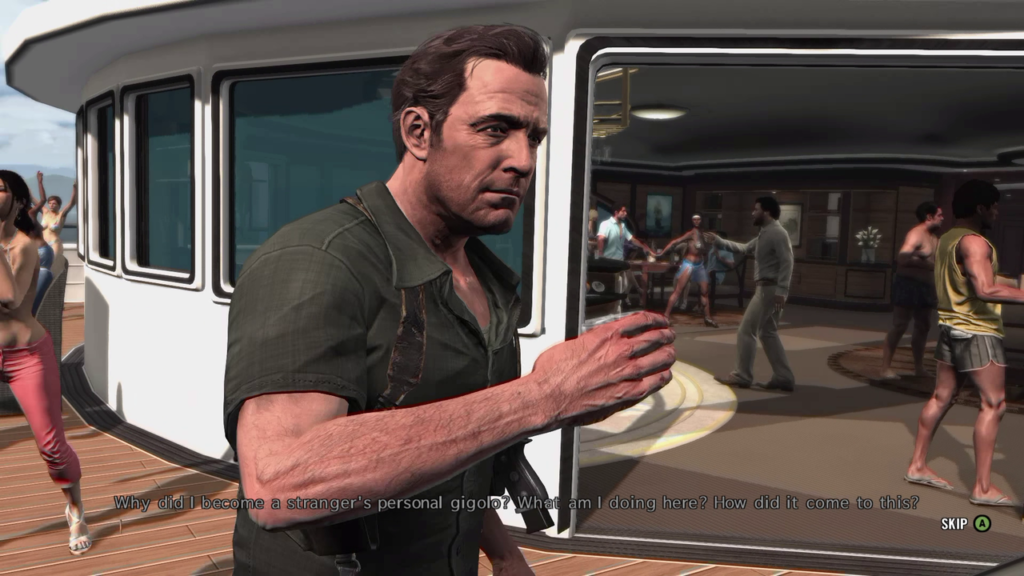
In all honesty, my ability to relate to Max Payne 3 has surprised me about as much as it would anyone else, but it’s also just plain staggering how much of it I can relate to. It might just be a testament to the quality of the overall writing, but although it follows the critical screenwriting practice of “show, don’t tell” more than the first two games (although I will admit that the narration could be trimmed down at times), it’s still by far one of the most quotable video games I’ve ever played. Even now, I’m amazed by the sheer amount of lines delivered by Max himself that I can tie to my own experiences.
Granted, even with all of these aspects that I’m able to use to reflect on my past life experiences and current struggles, there is one that I’ve been able to chuckle at a little, although it does go back to Hannah. During chapter ten amidst Max and Giovanna’s endlessly engaging teamwork, Max can turn on a TV in a tiny office and watch an animated episode of Captain Baseball Bat Boy⏤a goofy kid’s cartoon and comic strip with a recurring presence throughout the series⏤in Portuguese, an international news report, and a hotel commercial. However, in a strange twist, the hotel turns out to be called “Hotel Mona”, with the tagline “an unforgettable place to stay” being read out by a seductive female voice that sounds nearly identical to Mona Sax’s. With that, Max rightfully figures then that it’s time to shut the TV off and get back to business. Now, on one of the first class sessions of my last college screenwriting course, attendance was taken, and Hannah was the name of one of my classmates. This wasn’t surprising, as it’s obviously a common enough name, but that was quickly followed by someone else named Anna with Hannah’s same last name. Since then, I’ve joked with others that I heard Max narrating in my head at that very moment: “I must be losing it.”
The Whole Shebang
Now, this post has been incredibly personal thus far, even more so than the video it’s based on (that video can be watched here, but like the other vlogs I’ve uploaded, the webcam quality is subpar, to put it lightly.) Much like that video, however, I’d like to dedicate the last body section of this post to the game as an overall experience, as my reasons for loving it far exceed its relatability. Of course, there was a 2008 Max Payne movie starring Mark Wahlberg, but instead of talking about that… well… dud, I’d like to point out that Max Payne 3 is the best Max Payne movie despite not even being a movie. Although it lacks the first two games’ gloomy graphic novel cutscenes, it makes up for it by featuring an eerie, grungy, digital glitch-riddled aesthetic that does a lot to compliment Max’s addictions and the nastier plot elements, not to mention the quick flashes of text boxes containing certain words and phrases as characters say them to add to the erratic vibes of its visual style.
The best way I can describe the overall tone and momentum of this game is Die Hard crossed with an atmospheric slow-burn A24 horror film. As brutal and exhilarating as the action is, it’s heavily propped up by the more meaningful and smaller-scale character moments, especially the moody intermissions during the first half that simply hold on Max smoking, drinking himself to death, and reflecting on all of the unforeseeable directions that his life has gone in. It very well could have the greatest introductory sequence in video game history, with such a sharp contrast between his miserable entrance into his apartment in São Paulo and all of the desperate reassurances going on in his own head. He keeps telling himself that he’s in a new and more hopeful place, that it’s time to let go of the people he’s lost, that drinking won’t do him any favors, that his self-respect is coming back… and yet, it’s all completely at odds with his excessive drinking, obsessive pill-popping, repeating flashbacks to his old home, and dreary yet beautiful classic orchestral theme playing over it. Funny enough, I recently watched RedLetterMedia’s Half in the Bag episode on Hardcore Henry, where Jay described the Crank films as basically the greatest movies ever, and just by seeing Jason Statham on their posters, I wondered if he’d be talking about those movies if Max Payne 3 was part of the same medium. Then again, maybe, Max just doesn’t sleep with enough women in public places for his tastes.
I just made sure to praise the usage of the Max Payne theme, but one of the most noteworthy advantages that this game has over its two predecessors is its soundtrack. Some tracks of theirs, like the “Byzantine Power Game” score from the first game and Vlad and Mona’s themes from the second game, are actually fairly decent⏤not to mention the Pearl Jam-esque beauty of “Late Goodbye” by Poets of the Fall from the second game⏤but the techno-alternative band HEALTH absolutely knocks it out of the park with the third game’s score. I unironically mean that, on the level of Daft Punk with TRON: Legacy‘s score with no exaggeration. Whether it be the harsh drum beats of the chapter thirteen score, the exotic jungle intensity of the chapter five score, the somber intermission synthwave tracks, or the blood-pumping yet nonetheless tragic main theme “Tears”, it couldn’t suit the consistent combination of intense action and slow-moving psychoanalysis any better. In fact, at the start of the final chapter, the Max Payne theme plays for a brief period, but it quickly fades out once Max’s cover is blown and he leaps onto the baggage claim conveyor belt. I love to interpret the noticeably rapid switch from the classic theme to the pounding HEALTH track “Future” as a way of saying, “don’t you forget that this is a whole new kind of game.” It’s like the opening of Exorcist III, where “Tubular Bells” plays briefly before being overpowered by a moody droning noise, as if William Peter Blatty’s trying to make sure the viewer knows that it is not the first movie.
Speaking of the game’s legendary soundtrack, it resourcefully and effectively makes use of the “interactive score” mechanic, which adds and removes instrumental and/or vocal tracks to the overall mix as the player progresses and has since been utilized in all of Rockstar’s games. Finally, inside Walton’s Bar during the fourth chapter, there are three licensed songs that play at different periods. After some research and listening to each of them individually, the first song⏤”Bright Lights” by Gary Clark Jr.⏤has become one of my all-time favorite songs, even if it’s barely going to compete with the haunting, disability-focused masterpiece that is “November Spawned a Monster” by Morrissey. While I’ve also grown to love the second song, which is “Wild in the Streets” by Garland Jeffreys, aptly enough, the third one just isn’t my cup of tea, as it’s “The Hooker” by Tom Zacharias. The only thing that I consider noteworthy about that one is how suspiciously similar it sounds to Jefferson Airplane. Anywho, the version of “Bright Lights” at Walton’s Bar turns out to be a rare cover that’s conveniently been cleaned up and uploaded to YouTube at shockingly high quality, although how the uploader was able to access it without its radio distortion is still unclear.
As a cinematic experience as opposed to just an entertaining gaming experience, Max Payne 3 is also elevated in part by its performances, but I want to set my focus on the voice actor for Max himself, James McCaffrey. He’s been providing Max with his signature rich and smoky voice since the start of the series (he’s actually Irish-American, much like Roger Clark, who provided Arthur Morgan with a now-iconic voice of his own), although this is the title in which the character’s appearance is so clearly based off the actor’s, with Max in the first game instead featuring the inappropriately nonchalant visage of series creator Sam Lake. Regardless, Max Payne 3 was probably a pretty important role for McCaffrey, as the first two games were fairly limiting for him as far as how much effort he was able to put in. Although he does have a couple opportunities to give it his all, most of his dialogue is restricted to the same grim, emotionless, monotone droning that could’ve worked if it only applied to his narration⏤his performance isn’t helped by the fact that it applies to almost all of his dialogue. As for the third game, while he’s somewhat monotone in his narration, it’s monotone in a way that comes off as jaded and cynical more than anything, which gives him far greater emotional range. Meanwhile, his diegetic spoken dialogue is all incredibly natural, expressive, and just generally well-delivered. I like to label his exchange with Neves on the roof of the Imperial Palace Hotel in chapter twelve “the Oscar scene”, as McCaffrey is given a golden opportunity to unleash his acting abilities in one furious, cathartic, hate-filled shouting match in reference to the organ-harvesting operation that he’d just uncovered, and all while his thumb’s resting against the trigger that’ll send the entire building crashing down once pushed.
I’d like to note that the game did not sell particularly well, and many still take issue with its execution as a major departure from the rest of the series… which was probably the intention that Rockstar North had. Again, unless I’m directly poking fun at it, I’d rather not bring up HuniePop too many times anymore, so if you’re somehow still wondering which of these games to play, I’d like to remind you that this game features the stunt embedded below at the end of its third chapter. Your decision has just been made.
If you’re still not convinced, (a) I’m afraid you might be monster that can’t be reasoned with; and (b) every great action movie has either a bar or strip club shootout, but Max Payne 3 has a dive bar shootout, a downtown nightclub shootout, and a seedy strip club shootout. What more could you possibly ask for?!
It’s Sunny Everywhere Else
Throughout this post, I’ve tried to connect my own personal experiences to this game as tastefully and reasonably as I thought was possible, given the severe discrepancies between mine and Max’s struggles. As I mentioned early on, any connections between our literal struggles are few and far between, and it’s very likely that my ability to relate to the game mainly derives from just this desperate need for inspiration and empathy I had during such a conflicting transitionary period between life at home and on-campus living. Luckily, I currently have a job coach and a therapist who both seem to be offering some genuine support that I was clearly lacking at the time I was heading off to college, as well as the next-door neighbor that I also mentioned previously. Aside from that, it’s writing these posts and my comic scripts that act as two motivating passions of mine that will hopefully continue to help me in the coming years as I plot out my future employment and/or academic career.
Whereas Arthur Fleck from Joker represented a clear understanding of the struggles that come with mental illnesses like mine and Arthur Morgan from Red Dead Redemption 2 shared my same need for clarity as to where to go from here, Max Payne faced the same inability to escape social isolation and move onto the next stage of life as mine, but all of these protagonists have always shared several other problems of mine⏤loneliness, the disintegration of a valuable relationship, and a lack of genuine understanding from others. All I can really say as I move onto the next project with the same level of eagerness as always is that it’s pretty telling that, back in Pennsylvania, I connected with protagonists like SpongeBob and Sonic, only to end up connecting with the deeply troubled main characters of M-rated shooter games and psychological thrillers years later. Then again, I also found the socially ostracized characters of Shrek and Sonic’s sidekick Tails painfully relatable growing up, so I suppose that’s just life with autism for you.


